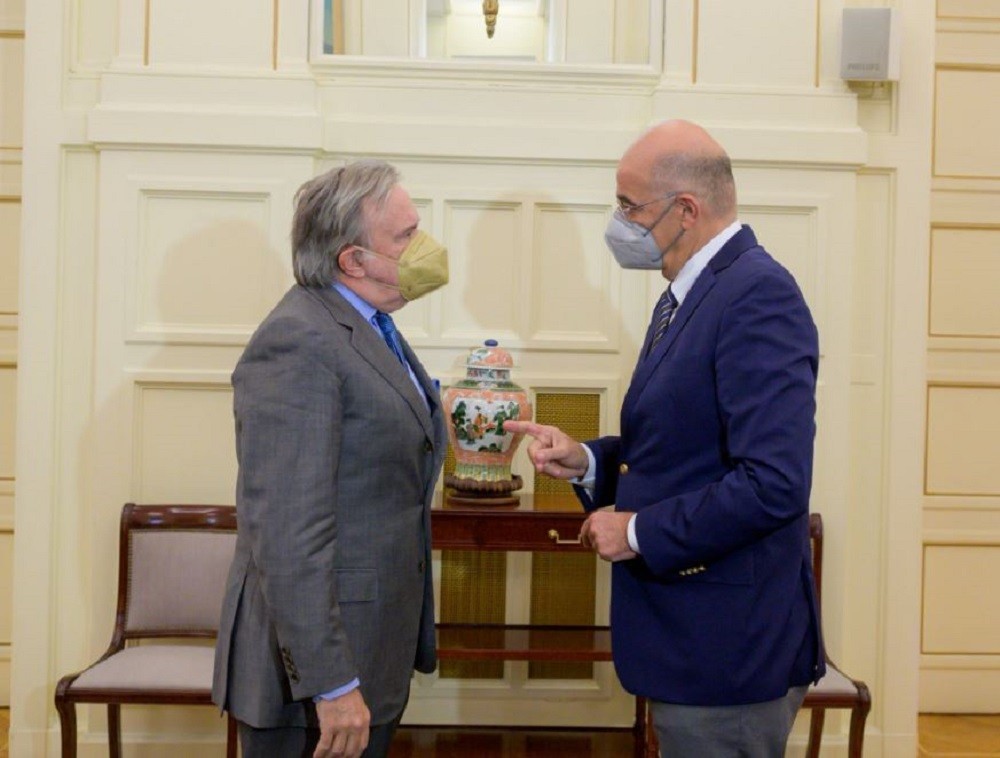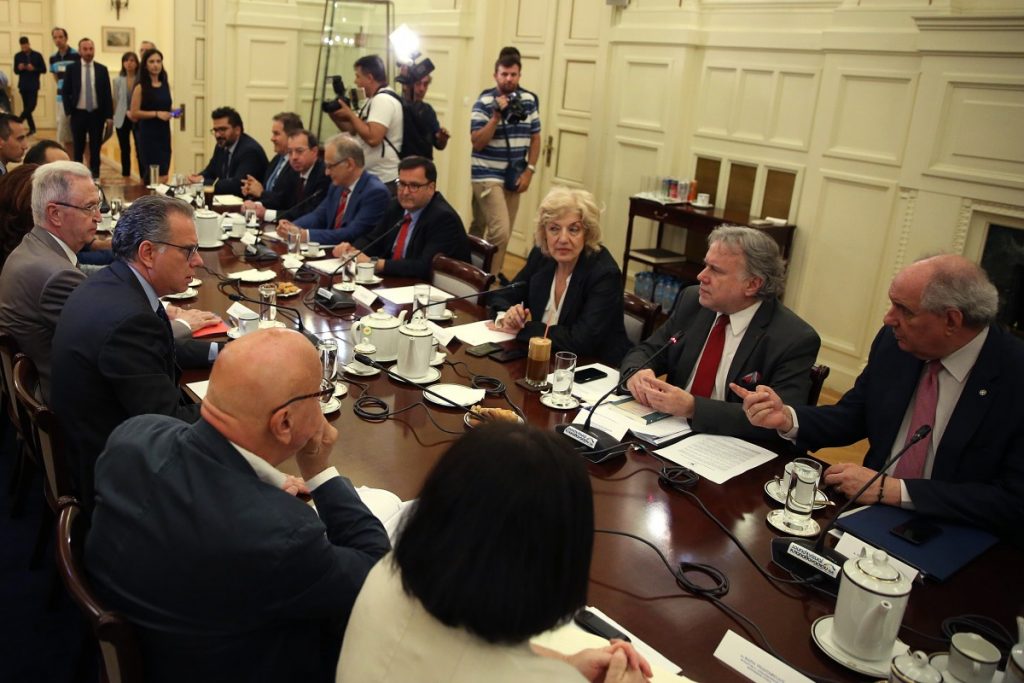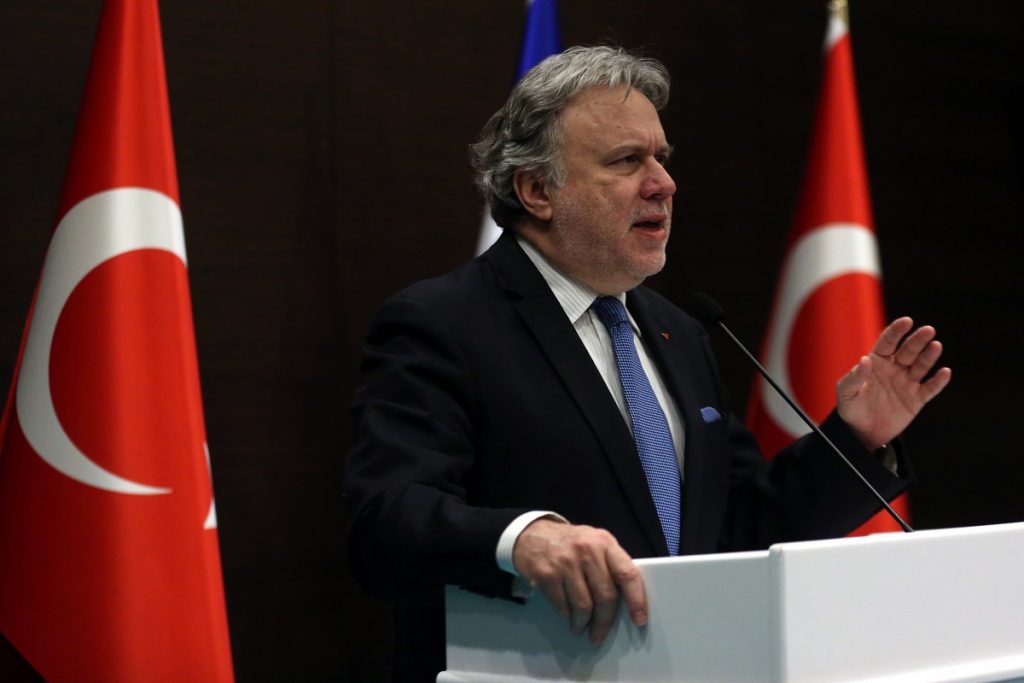
Katrougalos announces meeting with Turkish counterpart Cavusoglu in Brussels on Wednesday
Greece’s Foreign Minister George Katrougalos on Tuesday announced that a meeting with his Turkish counterpart Mevlut Cavusoglu has been arranged in Brussels on Wednesday, with a follow-up meeting to take place within the next 10 days in Antalya, in an interview with Real FM radio and journalist Nikos Hatzinikolaou.
Katrougalos is attending the Brussels III Conference on “Supporting the Future of Syria and the Region” on 12-14 March 2019, according to the Greek Foreignn Ministry.
He said the meetings will focus on Confidence Building Measures (CBMs) to help ease tension between Greece and Turkey and a discussion on the Cyprus issue.
“Without wishing to cultivate a climate of great optimism, we are not outside what has been discussed between Prime Minister Alexis Tsipras and President Recep Tayyip Erdogan,” Katrougalos said. “The first goal is for tensions to subside, and this has to a large extent been achieved; a meeting between the defence ministers has taken place, talks are taking place at a staff level on promoting CBMs,” he added.
The minister said that progress in the Cyprus issue “is not up to us” but depended on the other side “showing that it intends to conform with the obligations that arise through United Nations resolutions.” Athens had presented its positions at Crans Montana, the minister added, while pointing out that the Cyprus problems was not a bilateral but an international issue, concerning upholding international law.
Asked if plans to extend Greece’s territorial waters to the west will go ahead, Katrougalos said this was a decision that was “already made” and linked to establishing a Greek Exclusive Economic Zone (EEZ) with Albania and Italy, though the exact time when it would formally become law has not been decided.
The minister also expressed his belief that SYRIZA would not suffer as a result of the Prespes Agreement once the benefits of the deal became apparent, though noting that this might not happen in time for the European or even the general elections in Greece.
“We accepted the risk of paying a short-term political cost in view of a long-term national gain,” he said.
Asked about various problems and incidents in the implementation of the Agreement, Katrougalos noted that “it is precisely these incidents and the rectification of temporary violations of the Agreement that act as the best proof that the agreement is being implemented.” He also clarified that Athens was closely monitoring the implementation of the Agreement, through a interministerial committee set up at the foreign ministry and a programme of action that included not just the terms of the agreement but also the promotion of positive measures that will create a climate “that does not permit its future reversal”.
On Greek-Albanian relations, the minister noted that there had been a delay due to the political upheaval in Albania and the fact that Greece was still waiting for Tirana to reply to a series of issues raised by Athens concerning the ethnic Greek minority in Albania, such as their rights to property and to self-identify as members of the Greek minority.
“We have received some replies from the Albanian side and the talks have in some way ‘unfrozen’ but it is premature to say whether we will have a good result or not,” Katrougalos noted, adding that Greece’s aim is for such improvement on bilateral issues to open up Albania’s European prospects.
Questioned about relations between Greece and the United States, the minister said that these “have never been better” and that this was reflected in the statements of U.S. officials, who “respond to the fact that there is an alignment of interests of the two sides regarding the need to stabilise a particularly unstable region, in which our country is located.”
“Our country has proved that it is not just a pillar of stability but an exporter of stability,” Katrougalos repeated.
Finally, in response to voices in Europe calling for the suspension of EU accession talks with Turkey, the minister stressed that it was in the best interests of both Europe and Greece for the “institutional pathways” of Turkey’s European perspective to remain open, while he criticised such suggestions as “political opportunism” in bid to gain votes.
“We are in favour of resuming the discussion for customs union with Turkey and want to remain open to its European prospects but not unconditionally. Only on those terms that will lead, if Turkey is truly determined to follow its European perspective, to a win-win situation, or otherwise to have institutional means to control behaviour that is contrary to this,” he said.
Source: ANA-MPA

